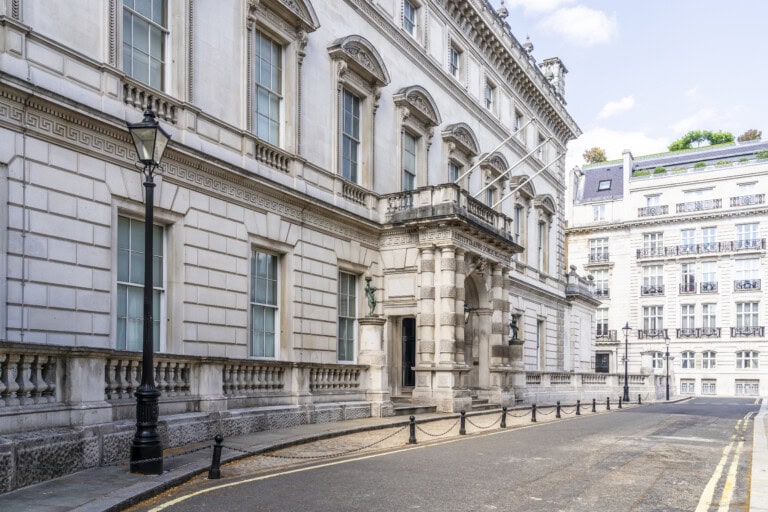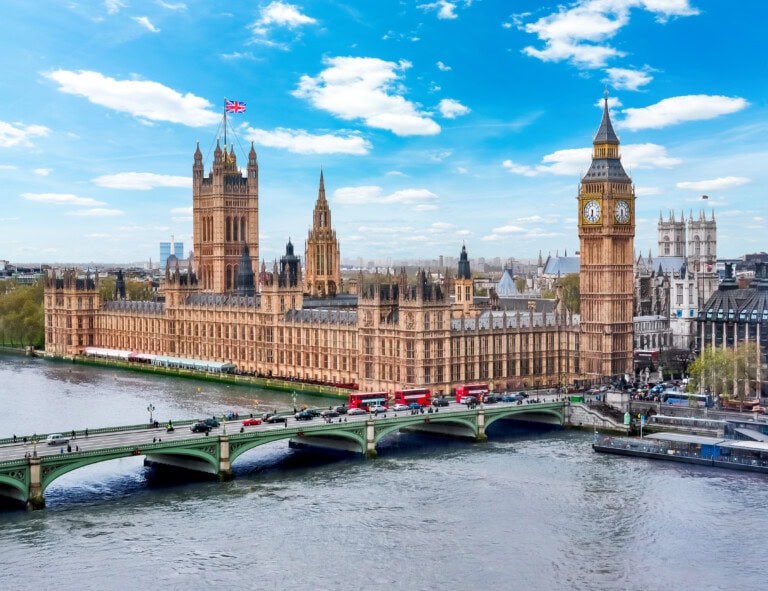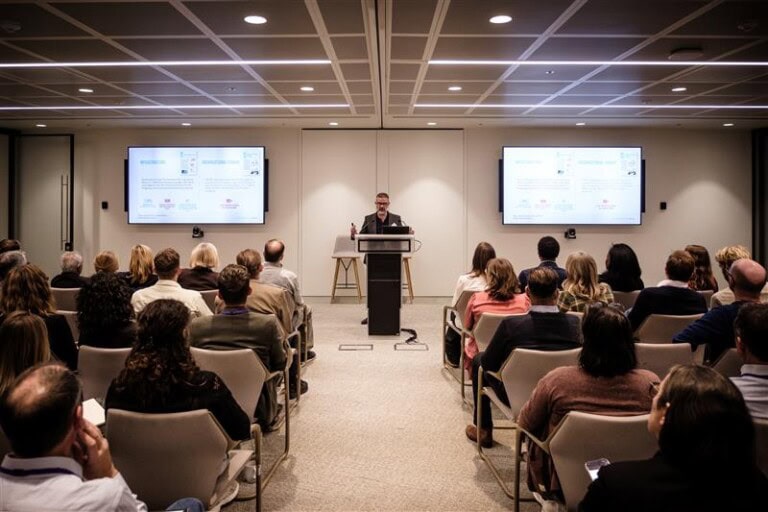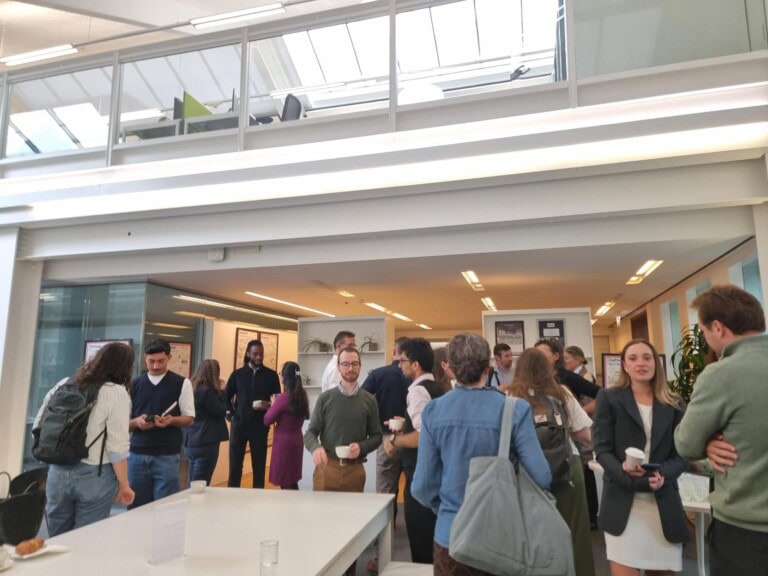Retrofit First is coming to Westminster: How Local Authorities set New Standards

UKGBC has long worked with Local Authorities to support knowledge exchange and capacity building. Recently, we were invited by London Councils to deliver a Low Carbon Development training programme for Planners, Policymakers and Sustainability Leads from across the Boroughs, in partnership with Bioregional and Preoptima. The programme focuses on whole-life carbon training, energy modelling, and, importantly, the opportunity for local authorities to drive ambitious low-carbon policy.
Looking for training? Contact UKGBC Bespoke Learning.
Westminster goes Retrofit First
Westminster City Council is one such leading the way with its new Retrofit First Policy, expected to be adopted in a couple of months. The highly anticipated policy follows in the footsteps of the City of London and Camden to prioritise retention and retrofit over redevelopment. Developers will have to explore the option to retrofit or extend first and assess the whole-life carbon impacts of their proposals. If demolition is granted on balance, embodied carbon limits will need to be met.
We spoke with Councillor Geoff Barraclough and Principal Sustainability Officer Hrabrina Nikolova-Laxness to trace the journey from election commitment to policy implementation, and the lessons learned along the way.

The Vision
First advertised in Labour’s ‘Green New Deal for Westminster’ policy agenda, the win in the 2022 local election provided the new Council leadership with the mandate to turn intention into action. That it has taken nearly the full election cycle to push the policy over the line is a point of frustration for Barraclough, who knows that democratic institutions need to deliver to maintain public trust.
He credits the dedication of the Westminster team leading on its development who persevered through ups and downs. In turn, Hrabrina emphasises how the Council’s ambitious climate vision motivated her and other key contributors to support the effort. The commitment to reach Net Zero by 2040, 10 years ahead of National Government, provided the pull factor that attracted ‘activist experts’ from the private sector. Young talent joined to make a difference, and were given space to do so.

The Mission
Recognising the need to bring specialist expertise inhouse, a new team straddling design, conservation and sustainability was created. Headed up by Tom Burke, his interdisciplinary background informs a holistic approach to culture, heritage and sustainability. Ian Poole, with one foot at Westminster and one at Elliott Wood, was among those instrumental in shaping the policy and building technical capacity in the planning team alongside Hrabrina.
The Council carefully assessed its fair share of the national carbon budget. To ensure their requirements would be practically achievable – and importantly, bullet proof on examination! – developers were invited to provide evidence, while Westminster commissioned their own feasibility studies of low carbon construction methods.
Extensive consultation with local stakeholders provided vital. Hrabrina recalls with awe how the policy leads Agnieszka Zimnicka, Aidan Nyman and Ailish Ryan doggedly responded to each and everyone, including those who disagreed. Initial fears of significant pushback were quickly dispelled: most developers were in fact calling for clearer, sustainability-led planning policy. The retrofit experience and support of Westminster’s large estates including Great Portland Estate, Howard de Walden State, Grosvenor and The Crown Estate were another boon.

Contentions were found in the detail: the right level of EC limits, evolving WLC assessment methodologies, the most effective retention metric.. (GIA over volume!). Along the way, the team aimed for a carrots over sticks approach where possible. Retrofit schemes retaining much of the structure will be exempt from predevelopment audits. Planning officers will be given leeway to permit extensions in order to unlock refurbishment. Where considered unreasonable, structural reports at pre-app for small schemes will not be required.
This pragmatism also shines through in the underpinning principle:
“Retrofit First, not Retrofit Only!” as Geoff puts it. With close to 80% of the local area covered by Conservation Areas, Westminster boasts a rich heritage, but it doesn’t want to be a museum. On the contrary, investment and room for evolution was not to be disincentivised. The case for retention is put to a series of sequential tests, including structural soundness.
Despite not having been adopted yet, ‘Retrofit First’ is already starting to have weight, beginning to feature in planning discussions, Geoff observes.
Will Others Follow Suit?
He hopes that other Local Authorities will be able to build on their work and benefit from Westminster’s learning curve. Might event the next iteration of the London Plan pick up the Westminster way?… While it already asks for WLC assessments, justifications currently remain subjective, and uncertainty that the Council set out to address in its own approach.
Retrofit First may not be Retrofit Always, but it represents a decisive step forward. And for other councils watching or progressing similar plans, Westminster has shown that with the right mix of ambition and collaboration, low-carbon development is possible. As Sabrina Puts it: ” it’s a success story because of the amount of people behind all of this work and the collaboration between them. It’s an inspiring place to be”

Are you looking to upskill your team on WLCA, low-carbon policy and development? UKGBC Bespoke Learning offers training for public and private sector audiences.
Related
UKGBC responds to Conservative plans to replace the Climate Change Act

AGM 2025 Results

Nature in Contracts

UKGBC launches a Commercial Retrofit Innovation map

